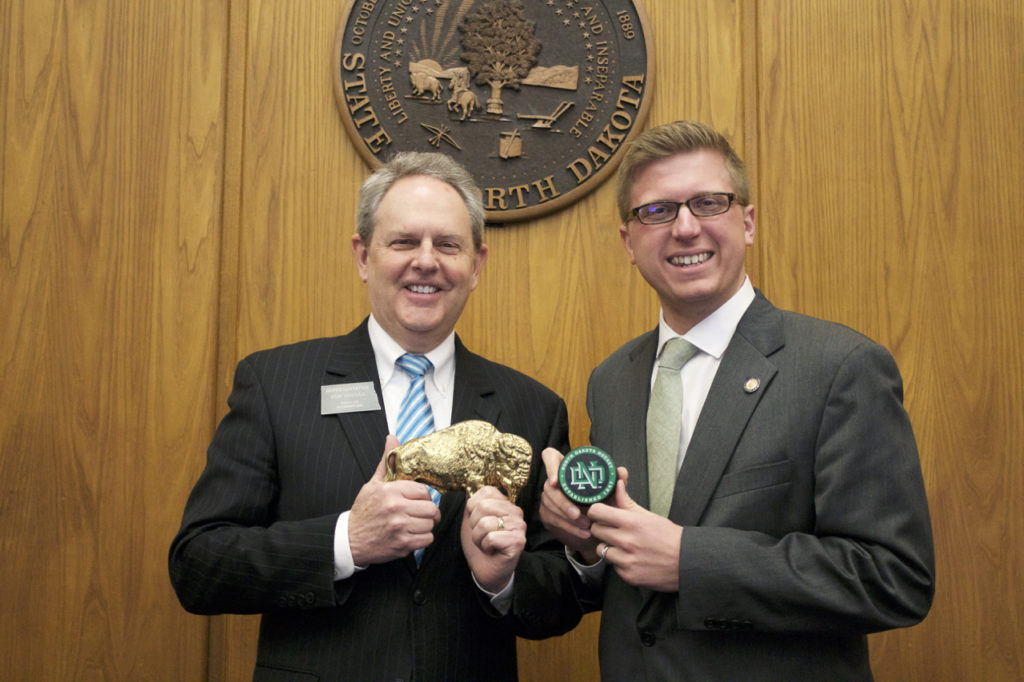House Dem-NPL Leader Corey Mock introduces resolution honoring UND hockey for 8th national championship
“North Dakota, here’s to you.”
(BISMARCK, N.D.) – House Democratic-NPL Leader Corey Mock (Grand Forks) today introduced a resolution honoring the University of North Dakota hockey team for its eighth NCAA Division I National Championship and its outstanding overall 2016 season. (The full resolution can be found here.)
“We all know North Dakota has a long and proud tradition of athletic excellence, and one of the hallmarks of this excellence is the University of North Dakota hockey team,” said Mock. “This resolution honors UND hockey’s continued accomplishments and their remarkable 2016 championship season. We look forward to UND hockey leading the way to many more national championships in future seasons. North Dakota, here’s to you.”
House Concurrent Resolution 3035 formally recognizes UND hockey’s 5-1 National Championship win over Quinnipiac University on April 9, 2016. It also recognizes their impressive season, which was completed with 34 wins, 6 losses and 4 ties, as well as the leadership of Coach Brad Berry who “molded a team of outstanding individual athletes into a cohesive, unselfish team with balanced and explosive offense, unyielding defense, and stalwart goaltending.”
In presenting the resolution, Rep. Mock bantered with Assistant Republican Leader and NDSU alumnus Don Vigesaa (Cooperstown). “You know, the only way to get this through the delayed bills committee was to promise the three-out-of-five members who are Bison fans that I’d acknowledge the significance of NDSU’s five nation al championships as well,” added Mock. “We can always find bipartisan cooperation when it comes to recognizing North Dakota accomplishments.”
al championships as well,” added Mock. “We can always find bipartisan cooperation when it comes to recognizing North Dakota accomplishments.”
According to the resolution: “The 2015-16 team, which proudly claimed the eighth University of North Dakota hockey national championship, is an exemplar of the hockey program’s enduring fighting spirit and it’s opulent, unwavering, and extraordinary heritage.”
Reps. Mock and Vigesaa also expressed their shared enthusiasm for the renewed rivalry between UND/NDSU football beginning Sept. 7, 2019 in Fargo.


